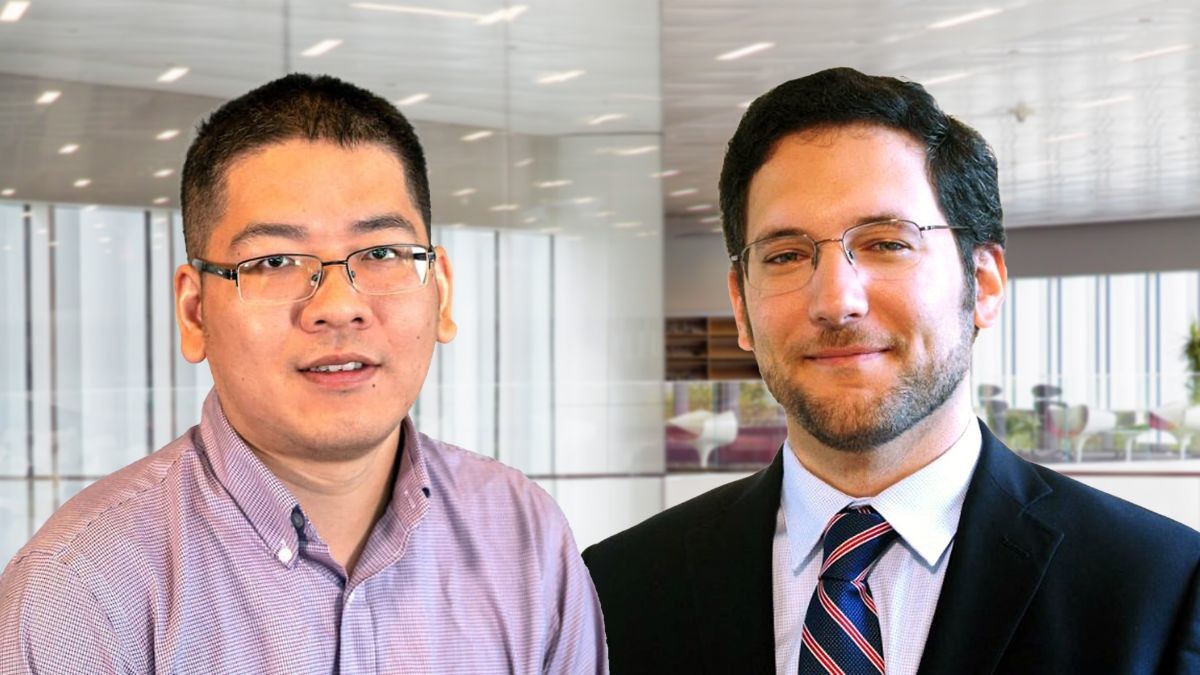
Wenyuan Tang and Spyridon Pavlidis Receive NSF CAREER Award
Congratulations to Dr. Tang and Dr. Pavlidis for receiving prestigious NSF CAREER Awards for their work on electricity market design and ultra-wide bandgap devices.
January 31, 2022 ![]() Isabella Mormando
Isabella Mormando
Wenyuan Tang and Spyridon Pavlidis, both assistant professors in the Department of Electrical and Computer Engineering at North Carolina State University, have received the Faculty Early Career Development award, commonly known as the CAREER award, from the National Science Foundation (NSF).
The CAREER program offers the NSF’s most prestigious awards in support of early-career faculty who have the potential to serve as academic role models in research and education and to lead advances in the mission of their department or organization. The NSF will provide $500,000 in funding over five years to support Tang’s project, “Pricing Non-convexities Toward Transparency in Electricity Markets,” and another $500,000 over five years for Pavlidis’s project “Engineering Ultra-Wide Bandgap III-Nitride Devices for Highly Efficient and Robust Electronics.”
The goal of Tang’s project is to build analytical frameworks to understand, evaluate, and adapt the evolving market mechanisms, toward the long-term goal of creating market mechanisms and providing policy recommendations that enhance the transparency, reduce the manipulation, and ultimately improve efficiency of electricity markets. The integrated research and education activities, including the Energy Immersion Week which provides hands-on opportunities for students with disabilities, will promote the participation of underrepresented minorities in STEM, improve STEM education and educator development, and increase public energy literacy and engagement in energy efficiency programs.
The research objective of Pavlidis’s CAREER project is to understand the operational physics of high voltage aluminum gallium nitride (AlGaN) devices and develop engineering solutions that will unlock their performance for power electronics where efficiency and robustness are key. Pavlidis is also committed to becoming a leading educator in the area of semiconductor devices via the use of team-based, laboratory-based methods and is passionate about ensuring equal access to STEM education/training. Thus, three education/outreach tasks have also been defined with the objectives of: (1) equipping undergraduates with marketable skills via hands-on research experiences that they can leverage for STEM careers, (2) engaging underrepresented minority groups to diversify the STEM workforce, and (3) increasing the public’s scientific literacy surrounding semiconductors/electronics.
Tang received his B.Eng. degree in electrical engineering from Tsinghua University in 2008, the M.S. degree in Electrical Engineering, the M.A. degree in Applied Mathematics, and the Ph.D. degree in Electrical Engineering from the University of Southern California, in 2010, 2014, and 2015, respectively. He was a Postdoctoral Scholar at the University of California, Berkeley and Stanford University from 2015 to 2017. He then joined NC State as an assistant professor in 2017, as a cluster hire in Sustainable Energy Systems and Policy of the Chancellor’s Faculty Excellence Program.
Tang’s research interests include electricity markets, data analytics and machine learning, and optimization for power systems. He is an Associate Editor of the IEEE Transactions on Sustainable Energy, and an Associate Editor of the IEEE Power Engineering Letters. He is a recipient of the R. Ray Bennett Faculty Fellow Award in 2021.
Pavlidis’s research interests lie at the intersection of electronic materials, devices, packaging and circuits. In recent years, his primary focus has been on the development of high-performance wide bandgap semiconductors for high power, high frequency and sensing applications. This has included the 3-D integration of heterogeneous systems, high-power GaN packaging and power amplifier design, as well as metal oxide (e.g., ZnO, InGaZnO) thin film transistors (TFTs) for biochemical sensor applications.
Pavlidis received his M.Eng. from the Imperial College London in 2010. He then completed his Ph.D. in 2016 at Georgia Institute of Technology, Atlanta. He joined the NC State ECE faculty in 2018.


